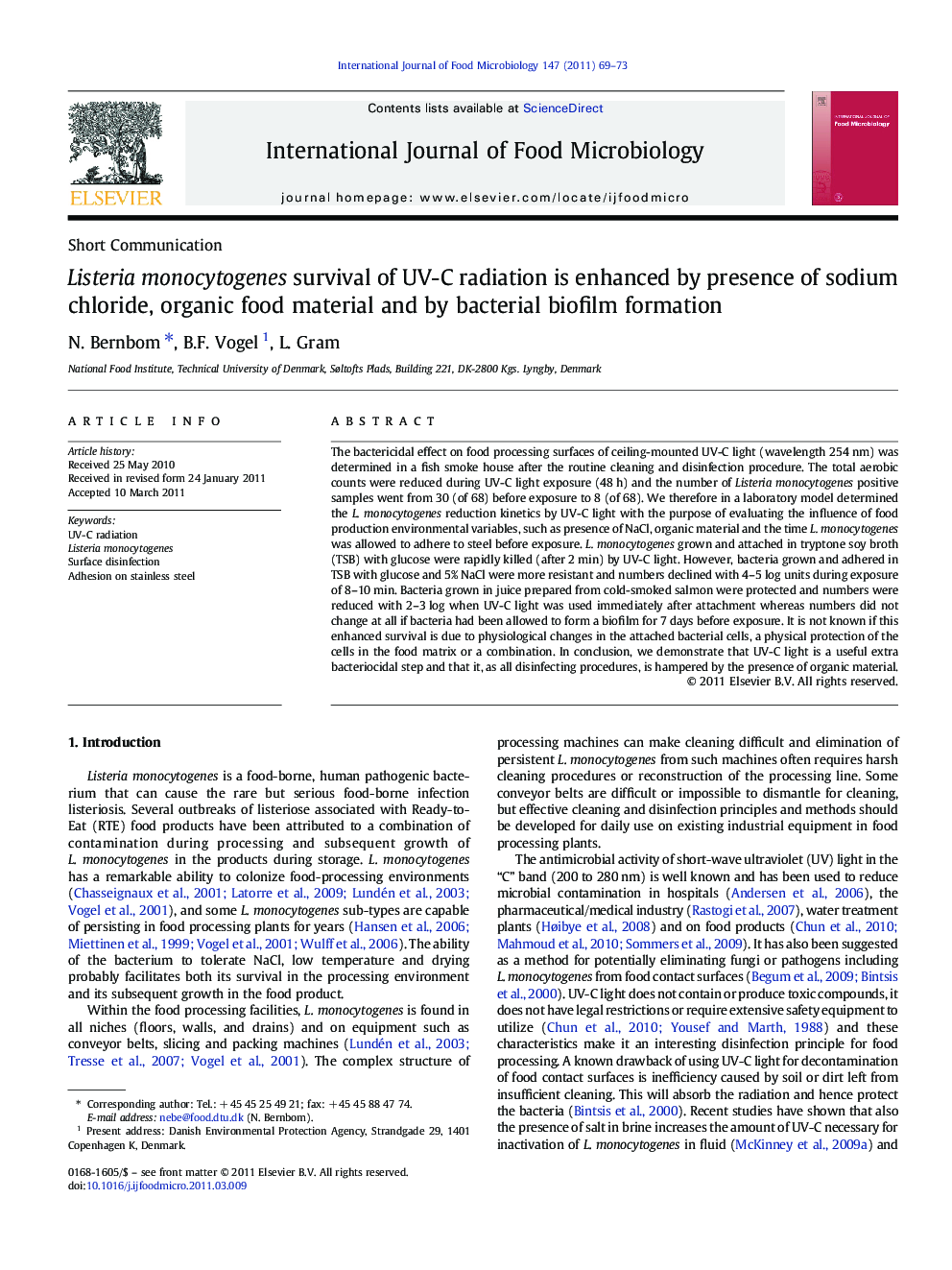| کد مقاله | کد نشریه | سال انتشار | مقاله انگلیسی | نسخه تمام متن |
|---|---|---|---|---|
| 4367748 | 1616669 | 2011 | 5 صفحه PDF | دانلود رایگان |

The bactericidal effect on food processing surfaces of ceiling-mounted UV-C light (wavelength 254 nm) was determined in a fish smoke house after the routine cleaning and disinfection procedure. The total aerobic counts were reduced during UV-C light exposure (48 h) and the number of Listeria monocytogenes positive samples went from 30 (of 68) before exposure to 8 (of 68). We therefore in a laboratory model determined the L. monocytogenes reduction kinetics by UV-C light with the purpose of evaluating the influence of food production environmental variables, such as presence of NaCl, organic material and the time L. monocytogenes was allowed to adhere to steel before exposure. L. monocytogenes grown and attached in tryptone soy broth (TSB) with glucose were rapidly killed (after 2 min) by UV-C light. However, bacteria grown and adhered in TSB with glucose and 5% NaCl were more resistant and numbers declined with 4–5 log units during exposure of 8–10 min. Bacteria grown in juice prepared from cold-smoked salmon were protected and numbers were reduced with 2–3 log when UV-C light was used immediately after attachment whereas numbers did not change at all if bacteria had been allowed to form a biofilm for 7 days before exposure. It is not known if this enhanced survival is due to physiological changes in the attached bacterial cells, a physical protection of the cells in the food matrix or a combination. In conclusion, we demonstrate that UV-C light is a useful extra bacteriocidal step and that it, as all disinfecting procedures, is hampered by the presence of organic material.
Research Highlights
► UV-C radiation has been suggested to control Listeria monocytogenes on food processing surfaces.
► Our study shows that UV-C radiation does in fact kill L. monocytogenes both in a model set-up and in a fish smoke house.
► We found that the effect, however, was significantly hampered by presence of NaCl, organic material and the time L. monocytogenes was allowed to adhere to steel before exposure.
Journal: International Journal of Food Microbiology - Volume 147, Issue 1, 14 May 2011, Pages 69–73